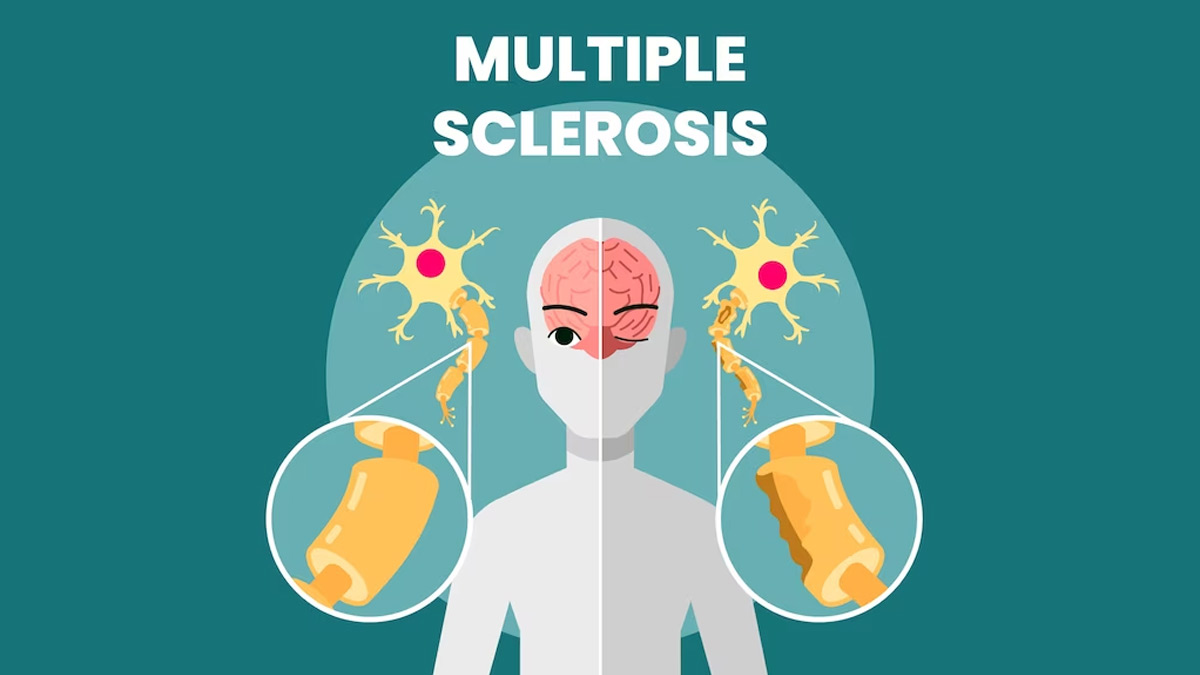
Living with Multiple Sclerosis (MS) can be challenging, as it affects various aspects of your life from your physical health to your emotional well-being. MS is a chronic condition where the immune system attacks the central nervous system, leading to symptoms like fatigue, muscle weakness, and difficulties with vision and coordination.
Table of Content:-
While there is currently no cure for MS, many people find that combining medical treatments with natural remedies can help manage symptoms and enhance their quality of life. If you're looking for ways to support your health alongside your prescribed treatments, here are seven natural remedies that might offer relief and make a positive difference.
Natural Remedies For Dealing With Multiple Sclerosis
Follow an Anti-Inflammatory Diet

Eating the right foods can make a big difference for people with MS. An anti-inflammatory diet focuses on foods that reduce inflammation and support overall health.
- Eat Omega-3 Rich Foods: Foods like salmon, flaxseeds, and walnuts are high in omega-3 fatty acids, which help fight inflammation.
- Enjoy Fruits and Vegetables: Fruits and vegetables like berries, spinach, and bell peppers are packed with vitamins and antioxidants. They help reduce inflammation and keep your immune system strong.
- Choose Whole Grains: Food, such as brown rice, quinoa, and oats are good for you and help keep your weight in check, which is important for managing MS.
Exercise Regularly
Exercise can help you manage MS symptoms and improve your quality of life.
- Go for Gentle Activities: You should try activities like swimming, walking, or cycling. These exercises are gentle on your body and can improve strength and balance.
- Try Yoga: Yoga is great for improving flexibility and reducing stress. It can help with balance and muscle tightness, which are common in MS.
Also Read: Multiple Sclerosis And Cardiovascular Diseases: Expert Explains The Connection Between The Two
Get Enough Vitamin D

Vitamin D is essential for keeping your immune system strong and your bones healthy. According to a 2018 study, getting more vitamin D might help lower your chances of developing MS.
- Get Sunlight: Spending time outside in the sun can boost your vitamin D levels. To boost your vitamin D levels, try to spend 10-30 minutes in the sun each day, adjusting this based on your skin type.
- Eat Vitamin D-Rich Foods: Foods like fortified milk, fatty fish, and eggs are good sources of vitamin D. Adding these to your diet can help keep your levels up.
Manage Stress Effectively
Stress can make MS symptoms worse, so it’s important to find ways to manage it.
- Try Mindfulness Meditation: Meditation can help calm your mind and reduce stress.
- Practice Deep Breathing: Deep breathing exercises can help you relax and lower stress levels. Spend a few minutes each day taking slow, deep breaths.
Also Read: Mental Health Matters: Experts Explain How to Identify Behavioural Red Flags of Stress
Get Quality Sleep

Quality sleep plays a vital role in managing MS. It affects how you feel and how well your body functions.
- Stick to a Sleep Schedule: Try to go to bed and wake up at the same time every day to help regulate your sleep.
- Create a Relaxing Sleep Environment: Keep your bedroom cool, dark, and quiet to help you get restful sleep.
- Avoid Caffeine: Try not to drink caffeinated beverages close to bedtime as they can interfere with your sleep.
Stay Hydrated
Drinking enough water is important for managing MS symptoms and overall health.
- Drink Plenty of Water: Aim for 8-10 glasses of water each day to stay hydrated.
- Adjust Your Fluid Intake: If you have frequent urination or other symptoms, manage your water intake to stay hydrated without worsening these issues.
Consider Herbal Supplements
Some herbal supplements might help with MS symptoms, but always talk to your doctor before starting any new supplements.
- Turmeric: It contains curcumin, which has anti-inflammatory properties. It might help with MS-related inflammation. A 2011 study found that the anti-inflammatory effects of turmeric might help reduce symptoms of MS.
- Ginkgo Biloba: This herb may help with memory and concentration issues that some people with MS experience.
[Disclaimer: This article contains information for informational purposes only, hence, we advise you to consult your own professional if you are dealing with any health issues to avoid complications.]
Also watch this video
How we keep this article up to date:
We work with experts and keep a close eye on the latest in health and wellness. Whenever there is a new research or helpful information, we update our articles with accurate and useful advice.
Current Version